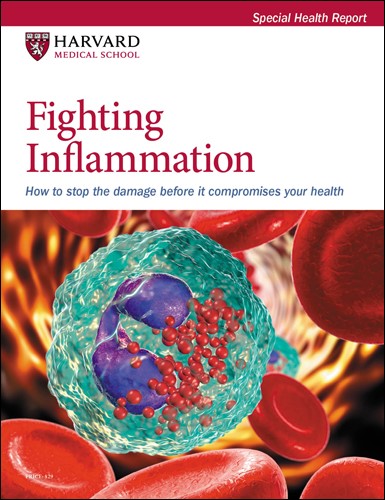What is inflammation, and why is it dangerous?
Ask the doctors
Q. I've heard a lot recently about inflammation being a health risk, but I'm not sure I really understand what it is. Can you explain?
A. When people talk about inflammation, they're actually talking about your immune system's response to a perceived injury or infection. When you're injured, this inflammation is actually a good thing. The area you injured will become red and swell as an army of beneficial white blood cells flow in to fight infection and help you heal. The same response occurs in other parts of your body when you encounter a virus or infection. But sometimes this immune response occurs when it shouldn't. It can be triggered, for example, when you are exposed to toxins, and by other causes such as chronic stress, obesity, and autoimmune disorders. In these cases, instead of moving in, healing the problem, and then returning to normal, the inflammation persists over time. It's thought that this chronic state of inflammation can lead to numerous health problems, including heart disease, arthritis, depression, Alzheimer's disease, and even cancer.
To combat this damaging chronic inflammation, choose the right foods, avoiding those that can trigger chronic inflammation, including red meat, refined carbohydrates (such as white bread and muffins), fried foods, and sugary drinks. Instead, opt for green leafy vegetables and fruits, nuts, fatty fish, and olive oil. Also focus on exercising enough, getting the right amount of sleep, and keeping stress under control.
— by Hope Ricciotti, M.D., and Toni Golen, M.D.
Editors in Chief, Harvard Women's Health Watch
Image: image_jungle/Getty Images
Disclaimer:
As a service to our readers, Harvard Health Publishing provides access to our library of archived content. Please note the date of last review or update on all articles.
No content on this site, regardless of date, should ever be used as a substitute for direct medical advice from your doctor or other qualified clinician.

















